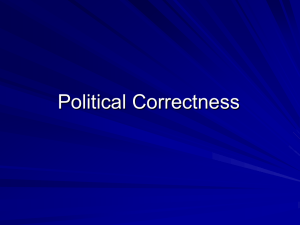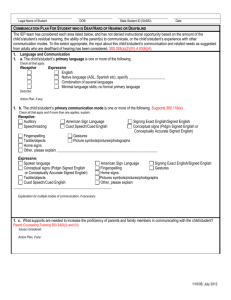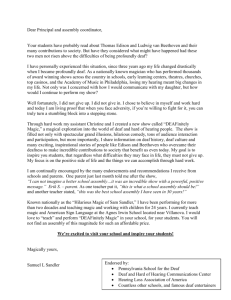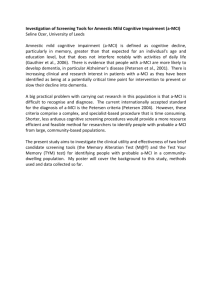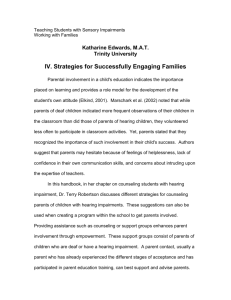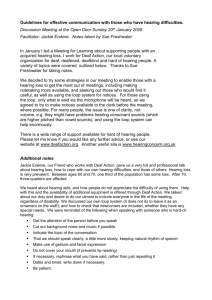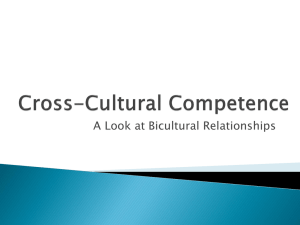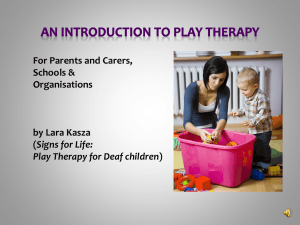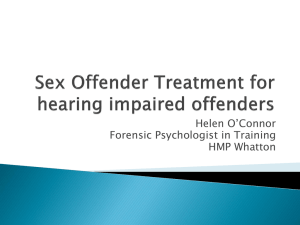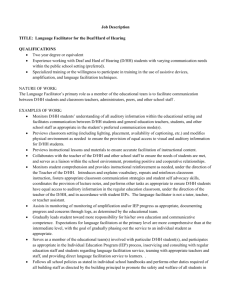Gary Morgan The origins of Theory of Mind development and delay
advertisement
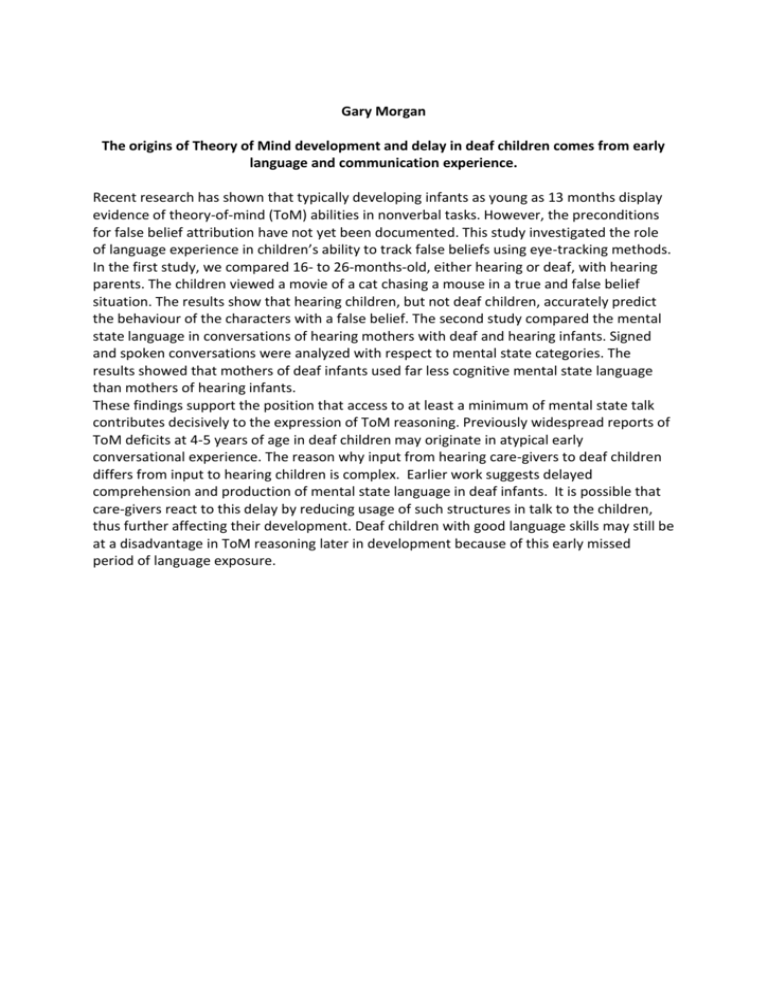
Gary Morgan The origins of Theory of Mind development and delay in deaf children comes from early language and communication experience. Recent research has shown that typically developing infants as young as 13 months display evidence of theory-of-mind (ToM) abilities in nonverbal tasks. However, the preconditions for false belief attribution have not yet been documented. This study investigated the role of language experience in children’s ability to track false beliefs using eye-tracking methods. In the first study, we compared 16- to 26-months-old, either hearing or deaf, with hearing parents. The children viewed a movie of a cat chasing a mouse in a true and false belief situation. The results show that hearing children, but not deaf children, accurately predict the behaviour of the characters with a false belief. The second study compared the mental state language in conversations of hearing mothers with deaf and hearing infants. Signed and spoken conversations were analyzed with respect to mental state categories. The results showed that mothers of deaf infants used far less cognitive mental state language than mothers of hearing infants. These findings support the position that access to at least a minimum of mental state talk contributes decisively to the expression of ToM reasoning. Previously widespread reports of ToM deficits at 4-5 years of age in deaf children may originate in atypical early conversational experience. The reason why input from hearing care-givers to deaf children differs from input to hearing children is complex. Earlier work suggests delayed comprehension and production of mental state language in deaf infants. It is possible that care-givers react to this delay by reducing usage of such structures in talk to the children, thus further affecting their development. Deaf children with good language skills may still be at a disadvantage in ToM reasoning later in development because of this early missed period of language exposure.
